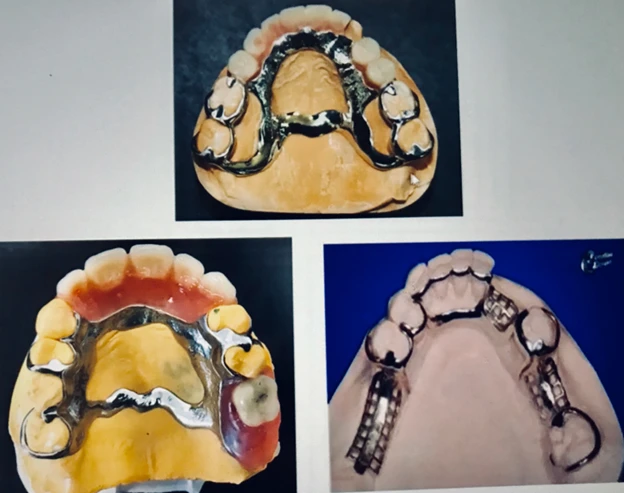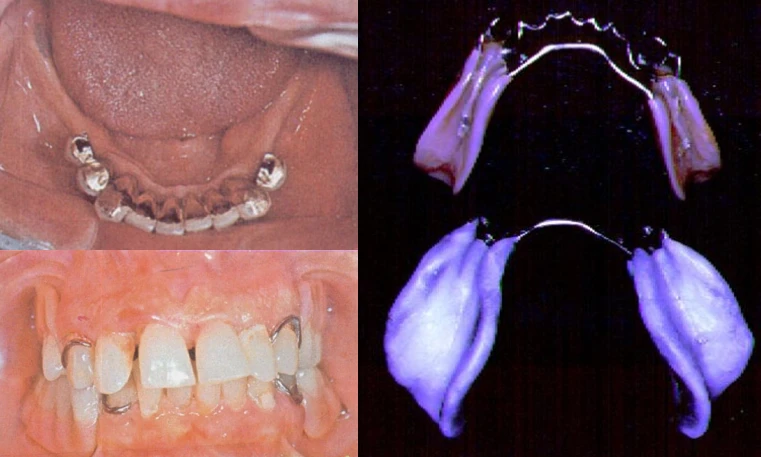Non-implant supported dentures are a great option for those who have lost their natural teeth. These removable dentures replace missing teeth without requiring surgical implants. They sit on the gums and stay secure with either suction or adhesive. You can choose full dentures if you need to replace all your teeth, or partial ones to fill in any gaps left by missing teeth. These dentures are a great solution for bringing back smiles and making everyday activities, like eating and talking, much easier. Although they provide a practical remedy for tooth loss, their contribution to gum health is frequently disregarded. It is possible that many people are unaware of how important these dentures are in preventing gum disease. Here, we will discuss the ways non-implant supported dentures can improve your oral health and support gum care.
The Ways Gum Disease Impacts Your Health
Gum disease, which is often called periodontal disease, is an infection that impacts the tissues that support and hold your teeth in position. It starts when plaque accumulates on your teeth and gums. If plaque is not properly removed, it can harden into tartar, which can trigger inflammation and lead to infection. Gum disease can lead to painful issues and, in extreme situations, may cause tooth loss. Keeping gum disease at bay is essential for ensuring good oral health.
How Non-Implant Supported Dentures Help
Non-implant supported dentures provide many advantages besides just filling in the gaps left by missing teeth. They are important for maintaining oral health, especially when it comes to stopping gum disease. Here are some ways these dentures help support gum health:
Providing Structure and Support
A major benefit of non-implant supported dentures is that they help maintain the overall structure of the mouth. When teeth are lost, the gums may recede, which can change the overall shape of the mouth. This can lead to pockets where food and germs can gather, increasing the risk of gum disease. Non-implant supported dentures fill in these gaps and provide necessary support to the gums, reducing the chance of bacteria accumulating.
Encouraging Proper Oral Hygiene
Dentures that are not supported by implants may promote improved oral hygiene habits. The ability to remove these dentures for washing makes it simpler for users to practice proper dental care. Gum disease can be avoided by routinely washing the gums and dentures to get rid of bacteria and plaque. To keep your mouth in great shape, dentists often advise a daily habit of cleaning your dentures and giving your gums a good brush. This easy routine helps ensure your mouth stays healthy and your smile stays bright.
Reducing Pressure on Gums
Non-implant supported dentures are specifically made to spread the pressure evenly across your gums as you chew and speak. This thoughtful design helps avoid putting too much strain on any one area of the gum tissue, which can cause swelling and pain. When your dentures fit well, they minimize discomfort and promote healthy gums, making it less likely for gum disease to develop.
Enhancing Nutrition and Overall Health
A nutritious diet plays a crucial role in preventing gum disease, and non-implant supported dentures can make eating healthy foods much easier. When patients can comfortably chew their meals, they are more likely to choose wholesome options. A balanced diet boosts the immune system and aids the body in fighting off infections, such as gum disease.
Wrapping It Up
Non-implant supported dentures offer more than just a restored smile. They are crucial in preventing gum disease. These dentures provide support, promote good hygiene, minimize pressure on your gums, and make it easier to eat nutritious foods, all of which contribute to better oral health. If you are thinking about getting non-implant supported dentures, keep in mind that they can be a valuable partner in achieving healthier gums. With the right care, these dentures can greatly enhance your overall quality of life and dental health.

